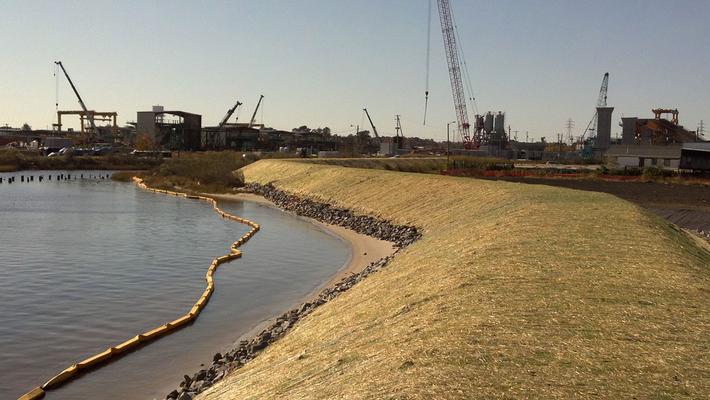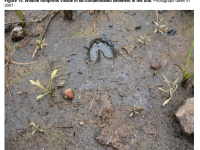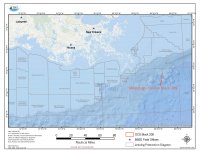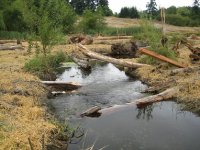$1.5 Million proposed for Oyster Restoration in Portsmouth, Virginia.
March 7, 2019
March 8, 2019 - Today the Department of Justice announced that a consent decree was lodged in the hazardous waste case Atlantic Wood Industries in Portsmouth, Virginia.
The settlement, estimated at $1.5 million, will go toward resolving natural resource damage claims and to restore habitats injured by pollution. The public is encouraged to review and comment on the consent decree.
The proposed funding will go toward restoring oyster reef habitat in the Elizabeth river. Oysters are important to ecosystems because they filter water as they feed. This provides cost-effective ecological benefits, including improvement of water quality and habitat for fish and other marine and aquatic life.
The Atlantic Wood Superfund Site consists of approximately 50 acres of land on the industrialized waterfront of Portsmouth, Virginia, and over 30 acres of contaminated sediments in the Southern Branch of the Elizabeth River.
From 1926 to 1992, a wood-treating facility released both creosote and pentachlorophenol into the environment through wood treatment and storage processes. These chemicals are known to be harmful to human and animal health.
During World War II, the U.S. Navy leased part of the property from Atlantic Wood industries and disposed of waste on site. The injury assessment looked at Navy releases of heavy metals contained in acetylene sludge.
The oyster restoration project includes plans for maintenance and monitoring, ensuring that the oyster reefs will be supported for the long-term. NOAA worked in tandem with Virginia Department of Environmental Quality and U.S Fish and Wildlife Service as co-trustees. The settlement funds will also reimburse costs incurred by NOAA and the Department of the Interior during assessment.
This case is an excellent example of NOAA working between multiple responsible parties to develop innovative restoration projects. The Elizabeth River Project’s contributions to identifying ongoing oyster restoration projects were particularly valuable. Installing oyster reefs are a cost-effective investment in the future of the Elizabeth River. They will continue to grow, benefiting wildlife and local economies for years to come.
The public can view and comment on the proposed consent decree on the Department of Justice website.







